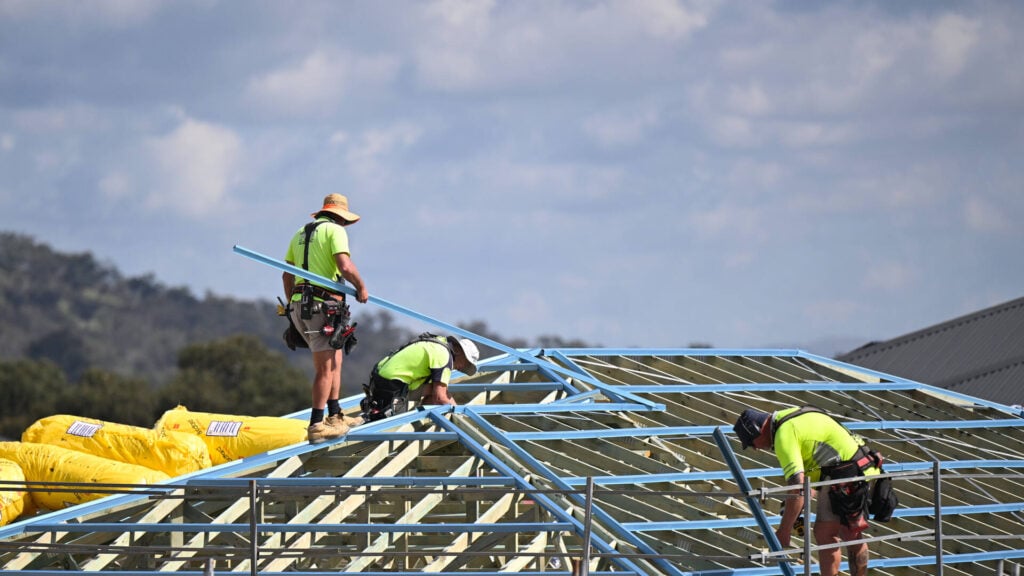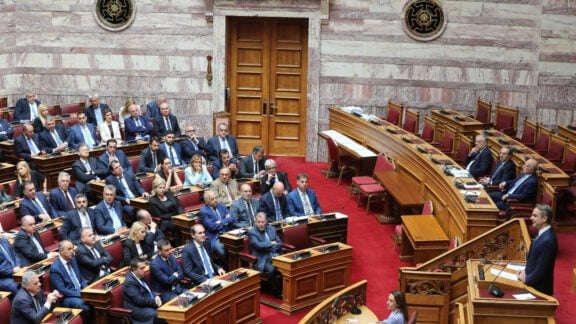A pause in updating rules as part of national construction standards will give builders “room to breathe,” the housing minister says.
A suite of measures brought out following the productivity roundtable to boost the number of homes being built will see upcoming changes to the national construction code paused until 2029.
Updates to the more than 2000 page code are normally undertaken every three years.
The rules were not usable for many builders in the industry, while construction times needed to be sped up, Housing Minister Claire O’Neil said.
“There really won’t be meaningful changes to the code for a seven-year period, so this is where we’re giving our builders a bit of room to breathe,” she told Sky News on Sunday.
“The biggest issue we’ve got in the code at the moment is just sheer complexity. This is a code which has ballooned out to more than 2000 pages.
“It’s really about streamlining, about simplifying and making sure that we provide builders the very best opportunity to build more homes more quickly.”
The freeze excludes essential safety and quality changes and maintains residential standards adopted in 2022, including seven-star energy efficiency.
A simplification of the construction code was one of the areas of consensus that came out from attendees of the government’s three-day economic summit.
Other housing reforms to come out of the summit include fast-tracking the environmental assessment of more than 26,000 homes.
A specialised environment department team will be set up to deal with the applications, with tools like AI also being used to speed up approvals.
Ms O’Neil said the changes would make in-roads to national housing targets of 1.2 million new homes being built by the end of the decade.
“We desperately need more homes for Australians in our country, and this is the way to get it,” she said.
“These are big, meaningful steps forward on housing that have come as a direct result of the roundtable conversation.”
But shadow treasurer Ted O’Brien said the pause in the national construction code was similar to policy the opposition took to voters at the federal election.
The coalition promised to freeze the code for 10 years as part of their housing policy.
“The only concrete step that comes out of the roundtable is coalition policy,” Mr O’Brien told Sky News.
“It would have saved a lot of time, a lot of effort, if you know, they just put a post on social media saying, ‘thanks, coalition, good idea’.”
But the minister said the coalition’s proposal would have seen a total pause and not have dealt with safety and consumer issues.
“This is a win-win roadmap to better housing supply,” Mike Zorbas
The Property Council of Australia’s Mike Zorbas said the measures will help unlock tens of thousands of new homes.
“This is a win-win roadmap to better housing supply,” he said.
Master Builders Australia chief executive Denita Wawn applauded the government, saying the constant churn of regulatory change had added pressure to a complex and costly system.
Australian Council of Social Service chief executive Cassandra Goldie, at the summit, warned a construction code freeze could mean households least able to afford home retrofits for a changing climate and energy future could lose out if reforms miss the mark.









